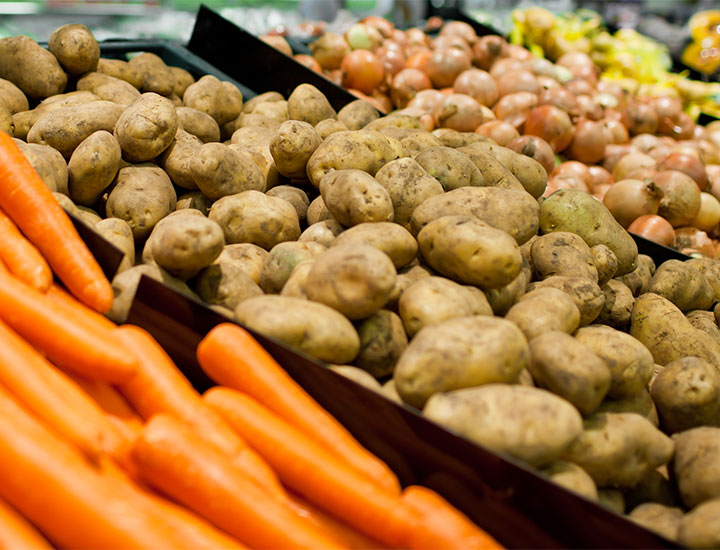
Potatoes
Cameron first starts off by mentioning that vegetables can be great for many reasons, and there is not a single specific vegetable that must be avoided for anything catastrophic to our health. "In the context of a low-carb diet, some vegetables are indeed higher in carbohydrates and may be less suitable," she notes. Potatoes are one of the most popular and delicious vegetables out there. It's very difficult to say no to fries, tater tots, or potato salad.
Cameron shares that, "While they're rich in vitamin C and potassium, they are also high in carbohydrates, particularly when consumed in large quantities. An average-sized potato contains about 37 grams of carbohydrates."
Consume this starchy vegetable in moderation, but try to minimize frying potatoes whenever possible and choose to bake them in healthy oils instead.
Corn
Another irresistible vegetable that made it to Cameron's list of foods to minimize is corn. Sadly, they also contain a good amount of carbohydrates. "This vegetable is often considered a grain due to its composition and nutritional profile. A cup of cooked corn contains around 41 grams of carbohydrates," Cameron notes.
The best way to eat corn is to boil it and keep unhealthy additions like butter to a minimum. Try healthier coatings like rubbing some lime on it or sprinkling healthy spices like paprika or cayenne powder to give it a rich, smokey flavor.
Peas
Although not as loved as the first two veggies mentioned here, you can add another reason to your list of why peas should be consumed as little as possible. Cameron explains, "Peas are surprisingly high in carbohydrates for a green vegetable. One cup of cooked peas has around 25 grams of carbs."
Besides being high in carbohydrates, peas are also known to cause bloating and gas, so it's suggested to combine them with spices like cumin or even ginger to minimize any discomfort.
Better Options
With the abundance of vegetable options available to us, Cameron gives us her three top choices when it comes to choosing low-carb veggies. "As healthier alternatives for a low-carb diet, you could consider vegetables like spinach, broccoli, and zucchini. These vegetables are lower in carbs but still provide essential nutrients. Spinach is a great source of iron, calcium, and vitamin K. Broccoli is rich in vitamin C, vitamin K, and fiber. Zucchini is low in calories and carbs, and it's a good source of vitamin C," Cameron recommends.
Keep in mind that, overall, vegetables can be a superb addition to a healthy and balanced diet. Everyone's health is different, so it's best to evaluate your needs for certain vegetables before following a specific diet plan. Cameron ends by saying, "Remember, everyone's nutritional needs are unique, and it's crucial to listen to your body and adjust your diet accordingly. For some, a low-carb diet may be beneficial, while others may thrive on a diet rich in wholesome, complex carbs."


